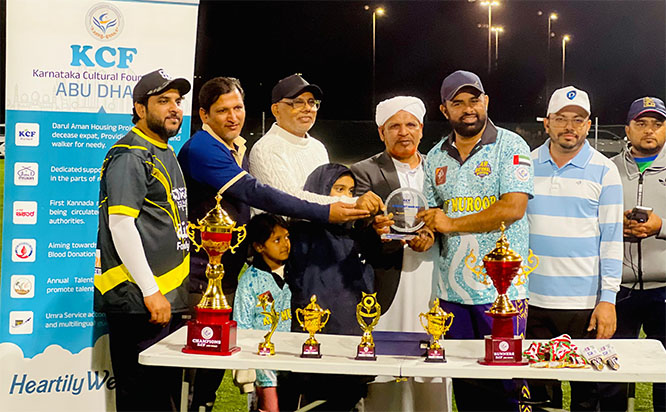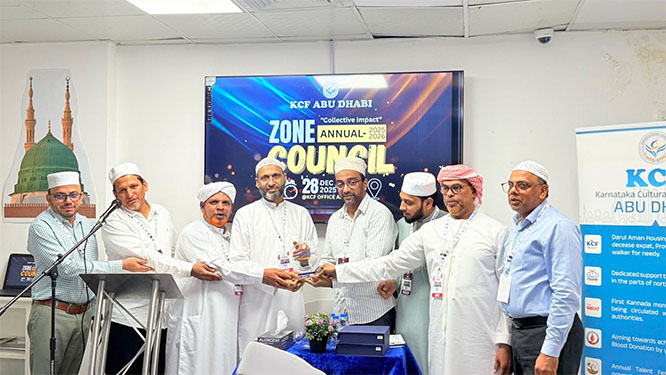Dhaka, Mar 26: At least four people were killed in Bangladesh's Chittagong on Friday after police fired rubber bullets at protesters during a demonstration against the visit of Prime Minister Narendra Modi, a police official said.
"We had to fire teargas and rubber bullets to disperse them as they entered a police station and carried out extensive vandalism," Rafiqul Islam, the police official told media, referring to protesters
Protests against PM Modi's visit also flared in the capital Dhaka, where dozens of people, including two journalists, were injured in clashes with police, witnesses said.
The development comes as Bangladesh marks 50 years of independence from Pakistan with celebrations focused on its economic achievements, which activist groups say have been overshadowed by rights abuses.
Police said four bodies of members of Hefazat-e-Islam, a hardline group, were brought to Chittagong Medical College Hospital after violence erupted at Hathazari, a rural town where the group's main leaders are based.
"We got four bodies here. They are all hit with bullets. Three of them are madrasa students and another a tailor," Alauddin Talukder, a police inspector at the hospital, said.
He said at least four other demonstrators were critically injured but did not say who opened fire.
Ruhul Amin, the government administrator of Hathazari town, said up to 1,500 supporters of Hefazat attacked a police station chanting anti-Modi slogans.
"They attacked us all of a sudden," he said, without confirming whether any protesters were killed.
Hathazari is home to one of Bangladesh's largest madrasas and is the headquarters of the Hefazat, which was formed in 2010 and is believed to be the country's largest Muslim outfit.
Hefazat spokesman Mir Idris accused police of "opening fire" at their "peaceful" supporters.
"There were some 5,000 protesters. They were all Hefazat supporters and they were mostly madrasa students. They were protesting Modi's visit and police actions against demonstrators in Dhaka," he said.
He was referring to other smaller clashes at the compound of the country's largest mosque in central Dhaka after Friday prayers when police fired rubber bullets and tear gas at brick-throwing Islamist supporters.
Hefazat is known for its nationwide network and large-scale protests demanding blasphemy laws in Bangladesh. In 2013 police clashed with tens of thousands of Hefazat supporters in Dhaka, leaving nearly 50 people dead.
Hefazat aside, a diverse range of Bangladeshi groups -- including students, leftist and other Islamist outfits -- have been staging protests over the last few days against Modi's visit.
They accuse Modi of stoking religious tensions and inciting anti-Muslim violence in the Indian state of Gujarat in 2002, which left about 1,000 people dead. Modi was Gujarat's chief minister at the time.
On Thursday more than 40 people were injured, including four police officers, during a student demonstration. At least 33 people were detained for violence.
Clashes also occurred at the elite state-run Dhaka University Thursday evening, when pro-government student activists allegedly beat dozens of anti-Modi student protesters.
50th anniversary
The violence has overshadowed Bangladesh's celebrations for 50 years of independence from Pakistan.
The former East Pakistan emerged as a new nation in 1971 after a brutal war involving India marked by horrific abuses that Bangladesh says killed as many as three million and displaced many more.
For decades the nation was ravaged by famines, coups and natural disasters but in recent years under Prime Minister Sheikh Hasina it has boomed economically with GDP per head more than quadrupling since 2000.
But under Hasina, 73, daughter of Bangladesh's murdered "founding father" Sheikh Mujibur Rahman and premier since 2009, the human rights situation has deteriorated sharply, activists say.
"The Bangladesh government should not be enabled to use this celebratory moment to lay the groundwork for another 50 years of rights violations, or to hide its abuses by presenting itself on the world stage at variance with how it acts against its own citizens," a joint statement by nine rights groups, including Human Rights Watch, said.








Comments
Add new comment